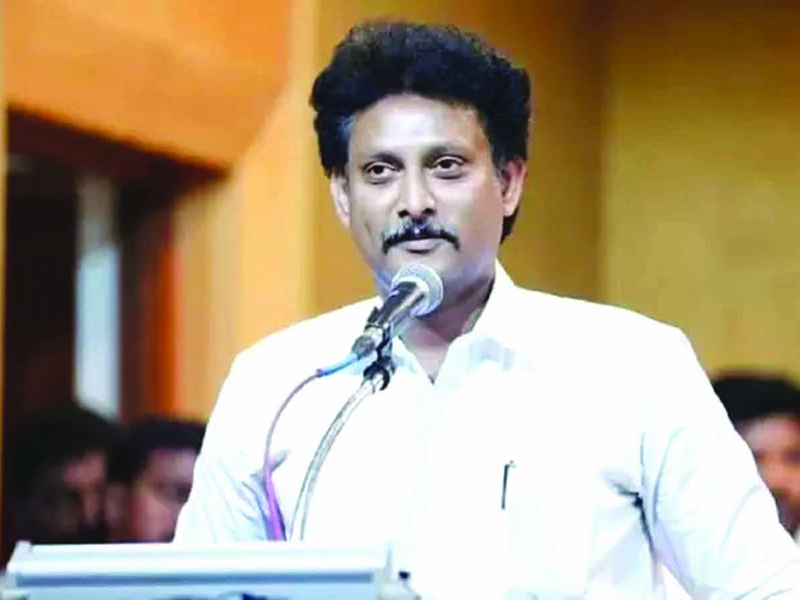Shivani Chaturvedi (Chennai)
Tamil Nadu has reaffirmed its commitment to the no-detention policy, ensuring that children in classes I-VIII in primary/elementary schools statewide are promoted to the next grade regardless of academic performance. This decision of the state government refutes the Central government’s recent amendment of the Right of Children to Free and Compulsory Education (RTE) Act, 2009, which reintroduced exams for children in classes V and VIII of all government and CBSE-affiliated schools, and their detention, in the same class if they fail a re-examination.
The back story of this decision is that on December 23, the Central government amended RTE Act Rules under a Gazette of India notification re-introducing board exams for children in classes V and VIII.
This notification over-ruled s.30 of the RTE Act which states “no child shall be required to pass any Board exam until completion of elementary education”. It also over-rules s.16 of the Act which states “no child admitted in a school shall be held back in any class or expelled from school till the completion of elementary education”.
Shortly thereafter, Anbil Mahesh Poyyamozhi, Tamil Nadu’s school education minister announced the state government’s intent to adhere to s.16 on the ground that the Central government’s Gazette notification is a “stumbling block” that would adversely affect children from socio-economically disadvantaged backgrounds. According to Poyyamozhi, children from EWS (economically weaker sections) are already confronted with inadequate access to quality education, socio-economic hardships, and limited resources. Detaining students from marginalised communities at young age could discourage them from continuing their education, and result in a large number of them dropping out of school.
Poyyamozhi also reiterated that under the Constitution, education is a Concurrent List subject with both the Centre and states competent to legislate on it, and that the TN government has already opted out of the National Education Policy (NEP) 2020. Therefore the Central government’s Gazette notification has no impact on TN’s 37,311 state government schools with an aggregate enrolment of 5.47 million students.
The decision of the DMK government to stick to this ill-considered woke mandate to refrain from independently testing children in classes I-VIII and promote them routinely, has dismayed respected educationists in the state. Particularly, since the experience of the past 14 years after the RTE Act became operational in 2010. The Annual Status of Education Report (ASER) 2023 of the highly respected Pratham Education Foundation, which in a departure from usual practice, tested the learning outcomes of a nationally representative sample of teens in the 14-18 age group, reported alarming lack of academic and related competencies among them.
According to ASER 2023, 57 percent of the youth tested couldn’t do simple (three numerals divided by one) division sums, 42.7 percent couldn’t read a simple sentence in English, 66 percent couldn’t use a computer and only half used a smartphone for education purposes. Although ASER 2023 doesn’t report on learning outcomes of teens in the states, the competencies of children in Tamil Nadu are not, if at all, better.
Therefore, the state government’s resolve to adhere to the no-exams, no-detention mandate of the RTE Act has sparked a debate among educationists statewide. Critics contend that the no-detention policy will compromise academic standards by promoting students without ensuring they have acquired the foundational learning necessary for future education. “If a child is unable to keep up, she should be detained for remedial education. Acquisition of listening, speaking, reading, and writing skills up to class VIII are extremely important. Promoting children without ensuring they have acquired foundational learning is harmful for the child and not in public interest. It discourages students from making the effort to learn, and demoralises sincere, hardworking children,” says Chennai-based educationist Dr. S. Somasundaram.
There’s a broad consensus among educationists statewide that students who fail to meet the required academic standards should be given an opportunity to access remedial learning. But if they are still found wanting, they should repeat a year in class to strengthen their foundational learning. The past decade’s experience countrywide has shown that while supporting underprivileged children through free resources is commendable, over-indulgence and testing laxity is not in the national interest. “Education should not be politicised. This decision risks doing more harm than good,” warns Somasundaram.
Adds S. Kannappan, former Director, School Education, Tamil Nadu: “By promoting students without testing, we are essentially producing poorly prepared individuals. This will ultimately affect their future, as they won’t secure jobs.”
It’s a matter of common knowledge that Tamil Nadu’s DMK government is at loggerheads with the BJP/NDA government at the Centre. “However political animosity need not — and should not — extend to the education of innocent children. Empirical evidence accumulated during the past 14 years since the RTE Act came into force, shows that children’s learning outcomes are going from bad to worse. In the circumstance, recklessly promoting them to higher classes is utterly irresponsible and damaging to their own and the interest of Tamil Nadu, which is losing its tradition of academic excellence as the latest ASER 2024 testifies. Political differences should have their boundaries,” says the vice chancellor of a top-ranked Chennai university speaking on condition of anonymity.
Good advice that TN’s DMK government should heed!
